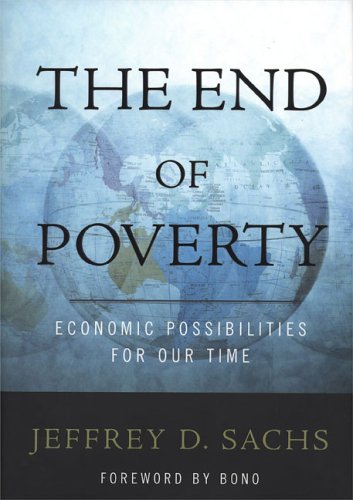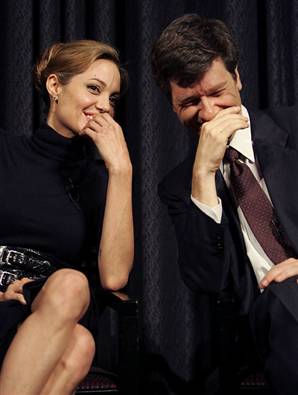By Otto Spijkers
 In Part 1 of my triptych on the human right to development, I sketched the legal argument and pointed out the relevant international law. In Part 2, I will try to find out whether the interpretation of the law proposed in Part 1 is actually the interpretation embraced by the international community. What is the official position on the universal human right to development? Much of Pogge’s argument is based on a non-binding declaration of 1946, when the United Nations consisted of only fifty-six member states, of which only 48 could adopt the declaration (and 8 abstained, including the USSR). Today, the United Nations consists of 192 member-states and sixty years have passed. So does the international community today acknowledge the universal human right to development and its resulting responsibilities? In 1986, the General Assembly adopted the Declaration on the Right to Development which cited most of the sources referred to in Part 1, and stated unambiguously that "the right to development is an inalienable human right." It also said that "States have the duty to take steps, individually and collectively, to formulate international development policies with a view to facilitating the full realization of the right to development" (Article 4). This human right to development seriously compromises the state’s right to development, which is understood in the Rio Declaration (1992) as "the sovereign right [of each state] to exploit their own resources pursuant to their own environmental and developmental policies" (Principle 3 of the Rio Declaration on Environment and Development). When the Declaration on the Human Right to Development was adopted, the United States of America cast the only negative vote; eight other countries abstained. (For a scholarly article on the right to development and the USA, click here.) A few years later (in 1993), the United Nations organized a World Conference on Human Rights, with the specific aim to "examine the relation between development and the enjoyment by everyone of economic, social and cultural rights as well as civil and political rights." In the Vienna Declaration and Programme of Action, the human right to development, as formulated in the Universal Declaration of Human Rights, was reaffirmed and so was the duty of the international community to "promote an effective international cooperation for the realization of the right to development and the elimination of obstacles to development" (para. 10).
In Part 1 of my triptych on the human right to development, I sketched the legal argument and pointed out the relevant international law. In Part 2, I will try to find out whether the interpretation of the law proposed in Part 1 is actually the interpretation embraced by the international community. What is the official position on the universal human right to development? Much of Pogge’s argument is based on a non-binding declaration of 1946, when the United Nations consisted of only fifty-six member states, of which only 48 could adopt the declaration (and 8 abstained, including the USSR). Today, the United Nations consists of 192 member-states and sixty years have passed. So does the international community today acknowledge the universal human right to development and its resulting responsibilities? In 1986, the General Assembly adopted the Declaration on the Right to Development which cited most of the sources referred to in Part 1, and stated unambiguously that "the right to development is an inalienable human right." It also said that "States have the duty to take steps, individually and collectively, to formulate international development policies with a view to facilitating the full realization of the right to development" (Article 4). This human right to development seriously compromises the state’s right to development, which is understood in the Rio Declaration (1992) as "the sovereign right [of each state] to exploit their own resources pursuant to their own environmental and developmental policies" (Principle 3 of the Rio Declaration on Environment and Development). When the Declaration on the Human Right to Development was adopted, the United States of America cast the only negative vote; eight other countries abstained. (For a scholarly article on the right to development and the USA, click here.) A few years later (in 1993), the United Nations organized a World Conference on Human Rights, with the specific aim to "examine the relation between development and the enjoyment by everyone of economic, social and cultural rights as well as civil and political rights." In the Vienna Declaration and Programme of Action, the human right to development, as formulated in the Universal Declaration of Human Rights, was reaffirmed and so was the duty of the international community to "promote an effective international cooperation for the realization of the right to development and the elimination of obstacles to development" (para. 10).  More recently (2000), the Millennium Declaration was unanimously adopted by the then largest-ever gathering of world leaders (189 member-states, most of them represented by heads of state and government). In the Declaration, the world community pledged to "spare no effort to free our fellow men, women and children from the abject and dehumanizing conditions of extreme poverty, to which more than a billion of them are currently subjected. We are committed to making the right to development a reality for everyone and to freeing the entire human race from want" (para. 11). The Millennium Development Goals are the concrete targets accompanying this general pledge. In A Practical Plan to Achieve the Millennium Goals, the director of the Millennium Project, Jeffrey Sachs (see picture of Jolie and him, a professor at Columbia University (New York), just like Thomas Pogge), said (p.1):
More recently (2000), the Millennium Declaration was unanimously adopted by the then largest-ever gathering of world leaders (189 member-states, most of them represented by heads of state and government). In the Declaration, the world community pledged to "spare no effort to free our fellow men, women and children from the abject and dehumanizing conditions of extreme poverty, to which more than a billion of them are currently subjected. We are committed to making the right to development a reality for everyone and to freeing the entire human race from want" (para. 11). The Millennium Development Goals are the concrete targets accompanying this general pledge. In A Practical Plan to Achieve the Millennium Goals, the director of the Millennium Project, Jeffrey Sachs (see picture of Jolie and him, a professor at Columbia University (New York), just like Thomas Pogge), said (p.1):
The Millennium Development Goals (MDG’s) are the world’s time-bound and quantified targets for addressing extreme poverty in its many dimensions – income poverty, hunger, disease, lack of adequate shelter and exclusion – while promoting gender equality, education, and environmental sustainability. They are also basic human rights – the rights of each person on the planet to health education, shelter, and security as pledged in the Universal Declaration of Human Rights and the UN Millennium Declaration.
For an interesting paper on a human rights perspective on the Millennium Development Goals, written by Philip Alston, Special Adviser to the United Nations High Commissioner for Human Rights on the Millennium Development Goals and Professor of Law and Faculty Director of the Center for Human Rights and Global Justice at NYU Law School, click here. – Otto
